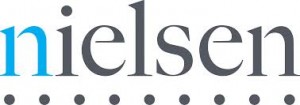Dr. Joseph Barber
In addition to working with graduate students and postdocs here at Penn on their career exploration and development, I also teach an Applied Animal Behavior and Welfare course at Hunter College of the City University of New York as an adjunct professor. Since job searching is a discrete set of human behaviors that can be defined and even measured, I find several topics discussed in my animal behavior course to be relevant when talking about career-related topics with students and postdocs.
One of my lectures in the course focuses on the question of whether other species experience emotional states and whether those states are similar to the ones that we experience. That is a very important question from an animal welfare perspective, because negative subjective emotional states (like fear, pain, frustration, boredom, loneliness) can be a potential source of suffering if they result directly from the way we house or manage these animals in captivity.
There are no easy answers to these questions, because emotions by their very nature are subjective and may well be distinct to the individuals experiencing them. I assume that other human beings feel emotional states in a similar way that I do, but it is almost impossible to show that in any objective fashion. We cannot measure the experiences that we feel, even if we can measure changes in blood flow or nerves firing in parts of the brain. What we are left with, then, are some general questions we must ponder. Here are two examples.
- Do other species have the same range of emotional states that we do, and do they have some that we don’t experience?
- How can we try to perceive the environment from the perspectives of those other species when they see, smell, hear and experience the world in such different ways from us?
I bring up the issue of differing perspectives because, in many cases, those types of questions are also important when thinking about employers — and especially hiring managers and recruiters. Yes, I know that they are humans, too (although with the more common use of applicant tracking software, the first entity that looks at your materials could well be a robot of sorts). Hiring managers should experience the world in the same way that you do. But their environment and experiences are very different from yours, and those factors can play a significant role in their emotional and behavioral responses. In any job application and interview process, it’s important to figure out how employers perceive their environment and how they respond to the application materials you send them in these environments. So, let’s look at the questions I listed above from a job perspective.
Do employers have the same range of emotional states that you do, and do they have some that you don’t experience?
In general terms, the same things that would annoy you will annoy employers. If they ask for a résumé and you send them a 10-page CV instead, they will find that annoying. If they ask for a cover letter and writing sample and you don’t send one, then that, too, will cause irritation. I don’t think there are studies that look at this, but I feel sure that chronic irritation will inhibit open-mindedness about your potential as a candidate. Even if employers have become desensitized to people not sending them what they ask for and in the right format, it may not change their behavioral response, which is probably going to be to shift your application to the “no” pile.
But while hiring managers don’t have unique emotional states, they will generally not feel the same levels of insecurity or worry in the job-search process that some job candidates may. After all, they are not the ones being judged. For that reason, you should not let negative emotions sneak into your application materials or your interview answers, as they will be easy for hiring managers to spot. That can happen quite subtly, with an innocent-enough sounding “Although I don’t have all the experience you are asking for, I do have …” statement in a cover letter.
Don’t dwell on the negatives. Find a more optimistic tone. One easy way to do that is simply to remove the first part of the sentence I used as an example above and start with what you can do and will offer that will make you a valuable candidate. You may only ever have 70 percent of what a job ad is asking for in terms of skills and experiences, but that can be enough — especially if you can demonstrate the potential you can bring.
How can you try to perceive the environment from the perspectives of employers when they see, smell, hear and experience the world in such different ways from you?
The first thing to realize is that employers do see the world differently than you do. Your priorities might be to find a job for some of the following reasons: to have enough money to eat and stay warm, to get good health insurance, to be able to work with an interesting group of colleagues, to continue being paid to do the research you love doing, to start on your professional career path, and so on. We all have our own reasons. Employers have their own reasons, too, and they aren’t likely to overlap with many of yours. The main reason they hire someone usually boils down to the fact that they need someone to get a job done effectively, whether that is teaching courses, working with clients, developing new protein-sequencing pathways or managing programs. They don’t care what you will spend your salary on, but they do care about whether you are going to be a worthwhile investment and good to work with.
In other words, they will be more interested in what you can do for them and less interested in what having the job does for you. When asked the question “Why do you want this position?” in an interview, your answer should put less priority on what you might get out of it and more on what you can offer them.
Focus on their needs first, and it will become obvious to them that you want the job because: a) you have the abilities to do it, and b) something from your past experiences has shown you doing something similar, doing it effectively and enjoying doing it.
A common mistake is to spend too much time telling an employer how excited you are by the possibility of working for such an impressive organization as they obviously are. That is information they already have. They want to hear about what you can bring to the role.
Your academic experiences are always going to be important in describing what you as a Ph.D. can bring, but you will need to talk about those experiences in active terms. Avoid comments like, “My academic experiences have given me …” which involves actions happening to you. Instead, consider something like, “I actively sought out opportunities to study X subject with X professor so that I could connect X concept with X reality, and I have used this knowledge in X situation to help me X …” — where the concepts and realities you mention are relevant to the job and the outcome highlights how effective your knowledge and skills truly are. Employers are looking for patterns: if you have used a skill successfully in the past, then you will be likely to do so again in the future. You need to find a way to show them how effective you have been — and that will always be more interesting than just telling them that you can be effective.
Hiring managers are keyed into the abilities, experiences and knowledge that will help them build capacity within their organizations. They are aware of the challenges that they face every day and are looking for the skills they know will be helpful in overcoming these challenges. If you do not know what those challenges are or what skills are helpful, then you may not be highlighting the most relevant experiences from your past.
So how do you see the world from the employer’s perspective? The easiest way is to read the job advertisement really, really carefully. That is where employers list what they need to get done and the types of skills they believe are necessary to do so. And to really see the world from an employer’s perspective, you also have to be able to use their language to describe your experiences. A great question to ask people whom you are meeting for informational interviews is “What are the skills you use on a daily basis that help you to succeed in your role?” That will give you insight into the way the world looks from the employer’s perspective.
And coming back to the idea of emotional states: when you make it easy for employers to see how your experiences qualify you as an excellent candidate do the job they need done (and most people applying for any job won’t do that), then you will make them happy. It is probable that happy employers will more likely see you as a preferred candidate.
So, yes, employers do have emotions, and you will need to make sure that you give some thought to how you can keep their subjective states as positive as possible.




